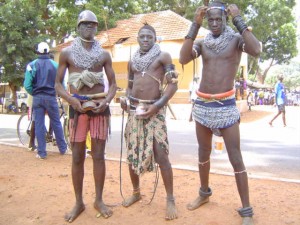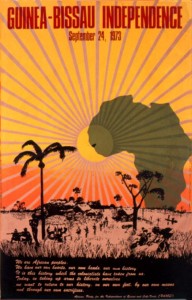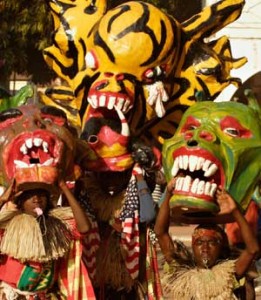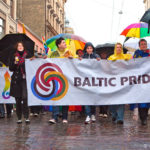Compiled by Richard Ammon
GlobalGayz.com
February 2012
Introduction
The good news is that both male and female homosexual acts are legal in tiny Guinea-Bissau on Africa’s west coast. The bad news is that this is Africa where homophobia runs high.
Homosexuality in Guinea-Bissau
In December 2008, Guinea-Bissau was one of 66 nations to sign a declaration at the United Nations supporting decriminalization of homosexuality and transgender identity. However, transgender rights are not immediately known. (http://www.ai-lgbt.org/texts/lgbt2006.rtf ; “Sexual Minorities and the Law: A World Survey”, Amnesty International) However, as of 2010, “the law only recognized heterosexual married couples as entitled to larger government housing.”
The bad news is that this is Africa, probably the world’s most religious continent, with more than 80% saying they believed in God. (At least half of the Christians questioned in a Pew survey expect Jesus Christ to return to earth during their lifetimes.) As is common, religion is no friend of the LGBT community worldwide.
In Africa, an overwhelming majority of respondents disapproved of homosexual behavior. The highest disapproval (98%.) is in three countries – Zambia, Kenya and Cameroon. Strangely, one of the countries with the highest gay acceptance rate (a mere 11%) is Uganda, where an MP is trying to get legislation passed which would punish homosexual acts with life in prison and even death in some cases.
The two former Portuguese colonies of Guinea-Bissau and Mozambique are also relatively tolerant of homosexuality.(http://www.newstimeafrica.com/archives/11763)
Human Rights Report
The U.S. Department of State’s 2010 Human Rights Report found that “social taboos against homosexuality restricted freedom of sexual orientation. But there were no reported violent incidents or human rights abuses targeting individuals based on their sexual orientation or identity, including Guinea-Bissau. There was no official discrimination based on sexual orientation or gender identity in employment or access to education and health care.”
 In an extensive analysis made by the U.S. State Department Human Rights Report in 2010 , the following comments appear regarding “Societal Abuses, Discrimination, and Acts of Violence Based on Sexual Orientation and Gender Identity”:
In an extensive analysis made by the U.S. State Department Human Rights Report in 2010 , the following comments appear regarding “Societal Abuses, Discrimination, and Acts of Violence Based on Sexual Orientation and Gender Identity”:
“There are no laws that criminalize sexual orientation; however, social taboos against homosexuality restricted freedom of sexual orientation. There were no reported violent incidents or human rights abuses targeting individuals based on their sexual orientation or identity. There was no official discrimination based on sexual orientation or gender identity in employment or access to education and health care. However, the law only recognized heterosexual married couples as entitled to larger government housing.” (http://paei.state.gov/documents/organization/160125.pdf)
The report also documents the intermittent violent political history of Guinea-Bissau.
A majority of African people disapprove of severe Sharia punishments but in Nigeria, they were approved by about 40% of Muslims and less than 10% of Christians. As well, a majority in Senegal and Mali did approve of whippings and amputations In nearby Guinea-Bissau a surprising 50% of Christians approved them.
African Same Sex Sexualities & Gender Diversity Conference
Further reporting comes from the African Same Sex Sexualities & Gender Diversity conference held in Pretoria in February 2011. ‘HIV among MSM in Guinea-Bissau: A Rapid Assessment of Risk Status’ was presented by Magda Lopes Queta, Sumaila Nobre de Carvalho, Paulina Mendes, Daouda Diouf, Marieme Ndaw, Fatima Dramé, and Stefan Baral
“Background: Guinea-Bissau has a generalized HIV epidemic with a population prevalence among reproductive age adults of approximately 1.8% (95% CI 1.3-2.6) which has been stable since 2001. The HIV response has focused on interrupting heterosexual and vertical transmission of HIV, and there is no data describing HIV risk status among most at risk populations in Guinea-Bissau. This study represented the first study to qualitatively and quantitatively evaluate HIV risk status among MSM in Guinea-Bissau.
“Methods: This study employed a non-probability based convenience sample targeting 200 men who have ever reported having sex with other men for accrual. To date, 50 MSM have been accrued in Bubaque and Bissau though accrual for the study remains open. HIV testing was completed with Determine HIV-1/2 rapid kit and confirmed with Bioline HIV-1/2 test. Syphilis testing was completed with RPR Syphilis test and confirmed with a TPHA test. All study participants found to be infected with HIV or syphilis were immediately provided appropriate counseling and treatment services.
“Results: Preliminary results demonstrate a population reporting high rates of transactional sex with some men self-identifying as male sex workers. In addition, rates of bisexual concurrent partnerships are high; similarly reports of active bisexual practices are common. Early analyses of these data suggest a disproportionate burden of infectious diseases among MSM in Bissau, which is the more urban center. Condom use with male and female sexual partners was relatively low and few men reported using appropriate lubricants during anal sex.
“Conclusions: While the data are preliminary, these data suggest that MSM are at high risk for HIV infection in Guinea-Bissau secondary to low reported rates of condom usage and initial indications of high HIV prevalence and risk status. MSM may represent a most at risk population in Guinea-Bissau which is similar to what has been observed in other West African countries including Senegal, Nigeria, and Ghana.”
President is Dead
To add to the political tension and confusion in Guinea-Bissau, the current serving president Malan Bacai Sahna died in January 9, 2012 at the age of 64;
“His death comes after a protracted illness. According to the national radio in the capital, Bissau, President Sanha died on Monday in a hospital in the French capital, Paris. The 64-year-old Guinea Bissau President came to power in 2009, after winning the presidential election.
“The death of the Guinea Bissau leader comes just a week after authorities announced a foiled plot to overthrow the government led by the former naval chief. It also comes in the aftermath of a series of street protest which called for the removal of the country’s Prime Minister Carlos Gomez Junior.
“Prior to the 2009 polls won by the late President Sahna, Guinea Bissau had seen repeated incidents of political assassinations, the last being the assassinations of ex-President Jao Bernando Vieira and his military chief.
“The International Committee of the Red Cross (ICRC) has been given access to the Mansoa military prison and at Armura air base in Guinea Bissau, where nearly 40 soldiers accused of being involved in recent coup attempt are being detained.
 “Officials of the ICRC could not make specific statement on the conditions of the detainees, but said some essential relief supplies were delivered. They said the group has been working since 1998 in Guinea-Bissau, where it provides protection and assistance for victims of various situations of violence.”
“Officials of the ICRC could not make specific statement on the conditions of the detainees, but said some essential relief supplies were delivered. They said the group has been working since 1998 in Guinea-Bissau, where it provides protection and assistance for victims of various situations of violence.”
Dénes Benczédi is Spokesman for the ICRC and WADR’s Awa Diedhiou speaks with him on the conditions of the detained Guinea soldiers.” (West African Democracy Radio)
Positive Changes in Guinea Bissau Despite Woes
September 21, 2011
Whenever Guinea Bissau is mentioned in the media, especially the Western media, it is almost always for the wrong reasons. From repeated coup attempts to high level political assassinations and poverty to drugs, the tiny West African country was always portrayed as a top example of a failed state.
But behind the curtain of several failures, there are also a number of success stories emerging. The United Nations Special Representative to Guinea Bissau, Joseph Mutaboba in an interview with WADR acknowledged that there are some positive changes taking place in the country.
Mutaboba spoke of improvement in the human rights situation in Guinea Bissau, citing gains made in realizing gender equality and the fight against rights violations including gender based violence as examples. “This change in attitude gives hope to anybody who is working in Guinea Bissau to see the society changing,” the UN envoy said.
At the just-ended high level gender symposium in the Ghanaian capital, Accra, Mutaboba showcased the country’s emerging successes in the area of gender equality and the promotion of women’s affairs.”
The UN Special Representative spoke with WADR’s Sheriff Bojang, Jr. about the changing trend in Guinea Bissau on the sidelines of the gender meeting in Accra.
(West Africa Democracy Radio)
More information:
http://travelingluck.com/Africa/Guinea-Bissau
http://www.facebook.com/pages/Homosexual-rights-in-Guinea-Bissau/135272896504562?sk=info
















